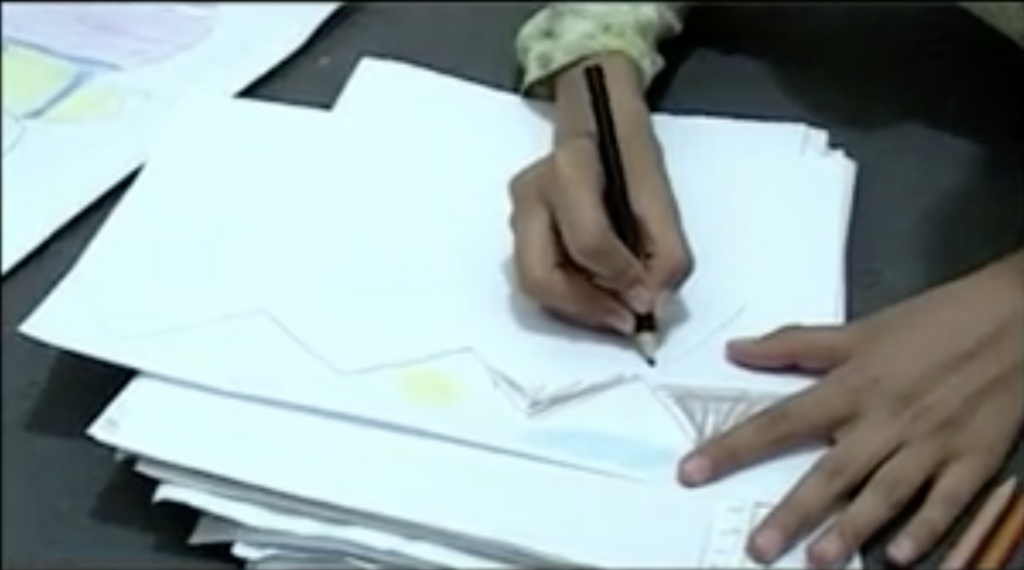Monirah Hashemi, a participating artist in The Jüdische Kulturbund Project’s Shared Stories’ collection, shared with us a story of extreme hardship under the Taliban regime. Her life’s work is using art to spread hope and helping women artists to escape the same oppression that she did.
Monirah is a playwright and actor born in Afghanistan. She now lives in Sweden.
Monirah is one of the few women able to escape Afghanistan when the Taliban took control of the country in 1990’s. She moved to Iran after the fall of the regime in the early 2000’s, then eturned to Afghanistan in an effort to revitalize and bring about social change through her art. As a powerful activist, Monirah faced significant difficulty with fellow Afghans in her community who maintained the fundamental doctrine of the Taliban. Art was primarily experienced for religious fulfillment and communication of political messages. Afghans persecuted women like Monirah for being an artist and working outside the home. Despite the challenges she faced, Monirah held a shining glimmer of hope knowing that the older generation were losing a hold on fundamentalist values and younger people could appreciate art for enjoyment, leisure, and self-expression.
In 2006, Monirah established a group to allow people to interact with the issues around them constructively and create a dialogue to express themselves and explore change. She organized shows where actors could travel to places where information was inaccessible, especially to women and those in prison. Monirah led workshops for participants to understand the power of art and as a source of strength when they are confused or scared. They learned to use art to solve issues during critical situations and to improve their communities.
At the heart of Monirah’s performance and art is personal expression and self realization. Monirah has used her work to face her own traumas and to empathize with others in the process. She brought women together in a community. Afghanistan is a society with a strong sense of taboo and limitation and in theater Monirah offers it as powerful platform. Actors can safely use their own voices, rationalize and help others rationalize their experiences, and keep alive the memories that many in their communities want to forget.
Monirah continues her work to help women in Afghanistan since the Taliban returned to power. Women there have no rights, privileges, or ability to participate in public life. These women survive by working with and creating religious institutions that keep them protected. Monirah hopes she can help them leave Afghanistan so they can be change agents. Currently, she gives refuge to 12 women artists from Afghanistan in Sweden.

Monirah Hashemi’s short film, My Mother and I (2015), is available on Facebook here.
